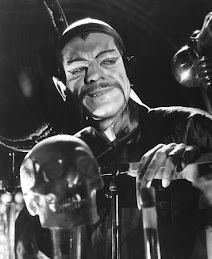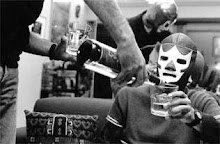One of Bigelow’s contentions in his American History course is that the text books in his curriculum, which are probably representative of the US as a whole, seem to make a hasty mention of the poignant past transgressions the US has made against Mexico as well as the effects of NAFTA on both parties. By asking students to assume roles that may or may not coincide with their presuppositions on the subject of Mexico there will be more room for critical thinking on an individual student standpoint.
I believe that Bigelow’s views are quite correct in that the youth (and adult) population of the United States take on the Mexican influx in our population, the reasons behind this trend and the impacting precursors to this movement. What the media has created in the wake of these trends is a stereotype, fear and a general misplaced apathy to the bigger issues at stake on the US and Mexican border dispute.
“As educators, our job is not to hand students conclusions about the border. But especially because this history does not figure prominently in the traditional curriculum in the US schools—and students are unlikely to be exposed to it on the nightly news—it’s up to us to introduce some critical voices.”
The current ado over the Mexico issues at hand is the perfect example of when history, albeit sometimes shadowed by misinformation or lack of it, and current events tangle. The curriculum in American history may not be forming a strong enough basis for students to begin tackling the subject matter in terms of their own lives and current problems or events. Bill Bigelow is attempting to bring about a more round-table and empathic approach to current affairs by broaching the historic content that affects the present. I agree wholeheartedly with the implementation of role-playing in the classroom as a means of perspective gathering and critical thinking. Certain historic eras, events or ideals are somewhat slighted or undervalued in terms of generality or stereotyping. I wonder on the impact of a more in-depth look at the USSR during the 1980’s when I was in school, on the stance that I took on the Nation. Would I have had the rock-imbedded images of cold oppression that I carried in my head or would I have had a well thought on and “arrived” opinion on the subject if I had been offered more perspectives on the topic.
The relevance of this timely book is plain to see in my opinion. A better-rounded critical and up-to-date mind needs to be forged in the halls of education. The media should not be able to paint on blank canvasses with stereotypes, generalities and idolatry. These pictures should be drawn from a historical AND current evaluation of the information facing students in all arenas; whether on the Mexican border, the middle east, Trade treaties, Ecology……the list goes on. Bill Bigelow sums up why this should be a growing trend in education by his ending comments.
“Our job is to offer students imaginative ways to engage the historic, social, and economic background that will equip them to think carefully about the lines between us and the bonds that connect us.” RETHINKING Globalization: Teaching for Justice in an Unjust World








No comments:
Post a Comment